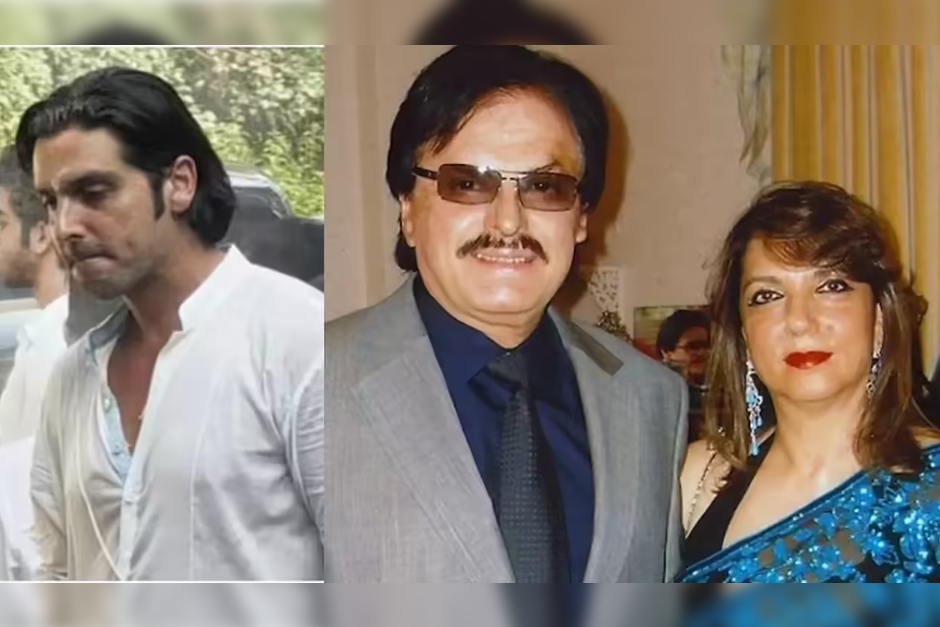The passing of Zarine Khan, the beloved matriarch of the renowned Khan family and wife of veteran actor Sanjay Khan, has brought with it a profound story of love, respect, and personal conviction. While the nation mourned her demise, many observed with curiosity and ultimately, deep admiration, the manner in which her final rites were conducted. Contrary to expectations given her Parsi heritage and the family’s Muslim background, Zarine Khan’s funeral was held as per Hindu rituals, a decision that stemmed from a heartfelt commitment to fulfil her explicit last wish for a ‘dah-sanskar’ (cremation). This poignant choice, meticulously honoured by her son, Zayed Khan, offers a powerful testament to familial devotion and the evolving tapestry of faith in modern India.
A Family’s Diverse Spiritual Journey
The Khan family, a prominent name in Indian cinema and society, has always been a beautiful mosaic of diverse cultural and religious influences. Zarine Khan herself hailed from a Parsi background, a community known for its distinct traditions and Zoroastrian faith. Her marriage to Sanjay Khan, a celebrated actor and filmmaker from a Muslim family, established a household that naturally embraced a confluence of beliefs and practices. Their children – Farah Khan Ali, Simone Arora, Sussanne Khan, and Zayed Khan – grew up in an environment where respect for all faiths was not just preached, but deeply ingrained.
This inherent inclusivity within the family unit laid the groundwork for understanding and accepting personal spiritual journeys. While public figures often navigate the complexities of interfaith marriages and traditions under scrutiny, the Khans have consistently exemplified unity and mutual respect. It is within this liberal and accepting framework that Zarine Khan’s personal spiritual leanings and final wishes found fertile ground to be expressed and, crucially, honoured.
The Heartfelt Request: Dah-Sanskar
At the core of this unique story lies Zarine Khan’s deeply personal decision regarding her ultimate farewell. In her final years, it became known to her immediate family that she wished for her passing to be marked by Hindu cremation rituals, specifically a ‘dah-sanskar’. This request, far from being a spur-of-the-moment decision, was reportedly a deeply considered desire, reflecting her personal beliefs and perhaps a spiritual connection she fostered over her lifetime. For a family with such diverse roots, fulfilling this wish meant stepping beyond conventional religious expectations to honour the individual spirit of their matriarch.
Speaking to the media after the solemn ceremony, a visibly moved Zayed Khan stated, “My mother always believed in the universality of love and spirit. It was her deepest wish to have her final journey through the traditions of dah-sanskar, believing in the cycle of life and elements. For us, her children, fulfilling her last wish was paramount. It wasn’t about religion; it was about honouring her soul and her choices.” This quote encapsulates the profound respect and understanding with which the family approached her request.
The ‘dah-sanskar’ ceremony itself, a Hindu funeral rite involving cremation, signifies the return of the body to the five elements, a release of the soul, and a natural cycle of life. For Zarine Khan to choose this, departing from both traditional Parsi practices (which involve Towers of Silence) and Muslim burials, speaks volumes about her individual spiritual path and her family’s unwavering commitment to uphold her autonomy in her final moments.
A Poignant Emblem of Love and Inclusivity
Zarine Khan’s funeral, observed through Hindu rituals and facilitated by her family, particularly her son Zayed Khan, serves as a powerful and poignant example of love transcending religious boundaries. In a country as diverse as India, where interfaith dialogue and understanding are crucial, such instances resonate deeply. It highlights that personal faith is often a journey unique to an individual, and that familial love can be the strongest force in respecting these personal truths, even in death.
The decision to honour Zarine Khan’s ‘dah-sanskar’ was not merely a procedural act but a profound statement of devotion. It underscored the family’s belief in individual choice and their dedication to her happiness and spiritual peace above all else. This event beautifully illustrates how, in the heart of a loving family, genuine respect for an individual’s spiritual path can bridge conventional religious divides, leaving behind a legacy not just of cinematic glamour, but of deep human connection and unconditional love.




